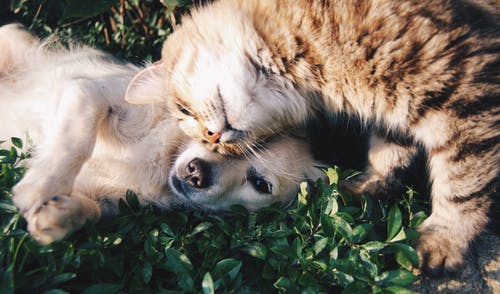
Pet owners potential benefits for older adults
Date:June 23, 2015 Source: Taylor & Francis Pet Ownership Potential Benefits for Older Adults
Summary:
New research calls for increased understanding about older adults, the relationship between pet ownership and health, and the current barriers which limit older adults' chances to own a pet. The stud goes into detail about physical and financial risks for older adult pet ownership and how it can be diminished.
Share:
FULL STORY
Research published in Activities, Adaption & Aging calls for increased understanding about older adults, the relationship between pet ownership and health, and the current barriers which limit older adults' chances to own a pet. The study, Fostering the Human-Animal Bond for Older Adults, goes into detail about physical and financial risks for older adult pet ownership and how it can be diminished.
Medical problems that arise with older adults, such as physical illness and emotional issues, have the potential to be mitigated by companionship of pets because it reduces social isolation and enhances physical activity. But illnesses that are often associated with aging, ranging from arthritis to diabetes, make it hard or impossible for older adults to provide routine care for their pets. Financial barriers are another issue that older pet owners face.
In the article, the researchers describe these common issues affecting older adults, particularly those living alone. They tell a story about Janet, a 75-year old obese woman who has diabetes and arthritis, but really wants a cat for company. Though she described herself as a "cat lady," she worries about the monetary investment and the fate of the feline should she fall ill or pass away.
When asked about what sparked the study, author Keith Anderson from the University of Montana commented "As a geriatric social work researcher, I've always been interested in finding creative, cost effective ways to improve the lives and well-being of older adults…My co-authors direct the Veterinary Outreach Program, affiliated with The Ohio State University, which provides mobile wellness care for the pets of older adults and/or homebound residents. Our interests overlapped and we began to discuss ways in which we could link pets in shelters with older adults who may benefit from pet ownership." The study was funded by the WALTHAM Foundation.
The researchers found that programs are beginning to arise to overcome these obstacles. "Programs are emerging that facilitate the adoption of pets by older adults. These programs match older adults with adult shelter animals and provide support throughout the adoption and ownership processes." Unfortunately, there are some drawbacks that these programs need to overcome, but the authors seem hopeful about finding potential solutions: "Lower-income older adults often live in buildings where there are fees and deposits associated with owning pets. We need creative solutions to address these financial barriers."
"Future researchers should continue to explore the human-animal bond for older adult populations, particularly for those with cognitive, physical, and financial limitations. There is so much potential benefit here for both pets and potential pet owners" wrote the research team.
Story Source:
Materials provided by Taylor & Francis. Note: Content may be edited for style and length.
Journal Reference:
Keith A. Anderson, Linda K. Lord, Lawrence N. Hill, Sandra McCune. Fostering the Human-Animal Bond for Older Adults: Challenges and Opportunities. Activities, Adaptation & Aging, 2015; 39 (1): 32 DOI: 10.1080/01924788.2015.994447
Cite This Page:
MLA
APA
Chicago
Taylor & Francis. "Pet ownership and its potential benefits for older adults." ScienceDaily. ScienceDaily, 23 June 2015.


 How to resolve AdBlock issue?
How to resolve AdBlock issue? 